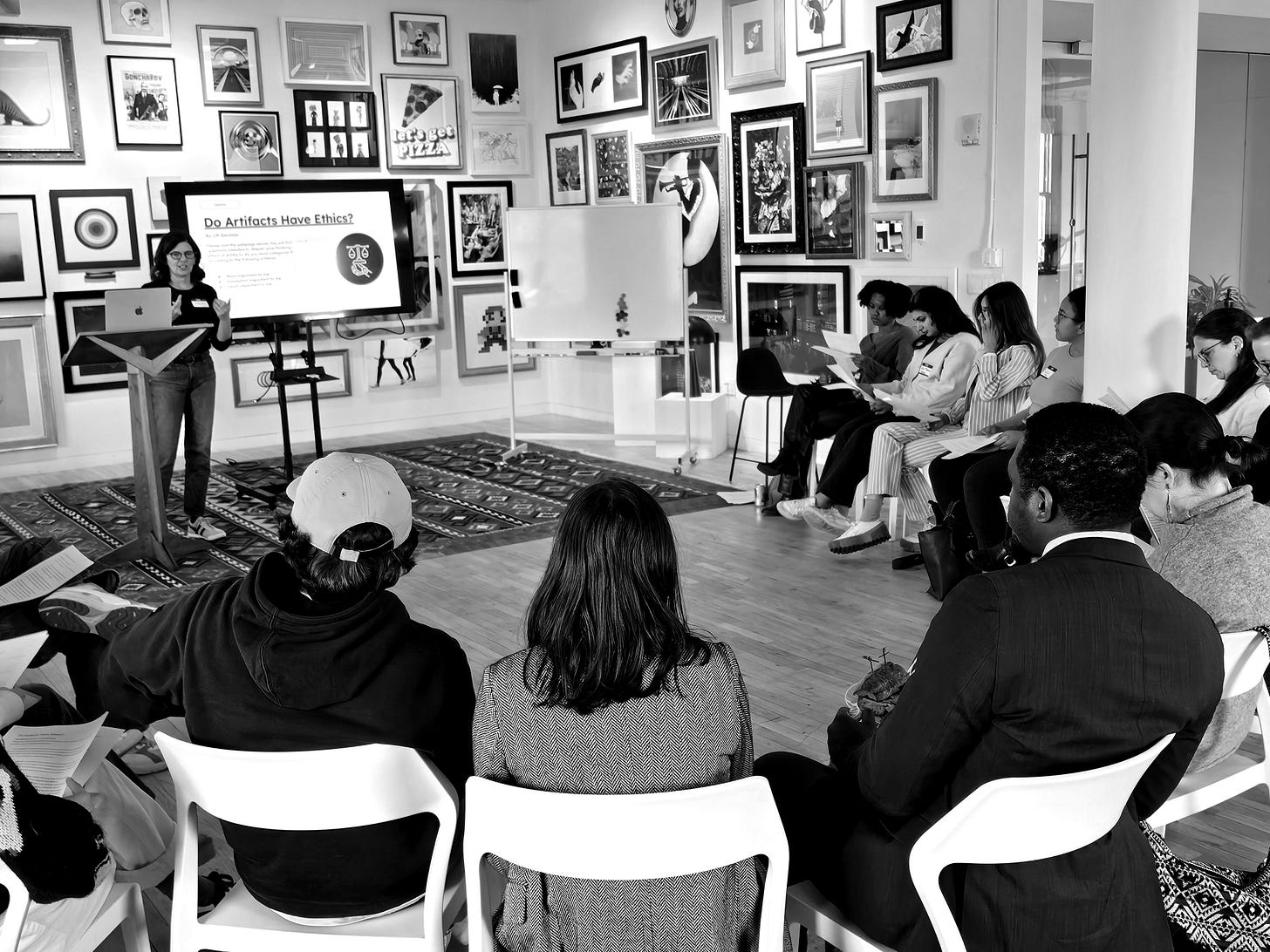Our first month of ETP Fellows
We’ve had an amazing first month with our inaugural ETP fellows.
Every Wednesday, our cohort of 18 engineers, product leaders, program managers, designers, and CEO/founders meets to dig into a key topic in ethical tech through activities, lectures and discussion.
Here’s what they’ve been up to so far:
Defining ‘ethical tech’ – and why everyone should care about it
Creating their own codes of ethics for their work
Learning how to make the business case for ethics in tech and AI
Navigating the ever-changing legal landscape
Product manager Bobby Zipp had this to share about his experience in the fellowship so far:
One of the program's greatest strengths is the diversity of experience in the room. Each one of the fellows brings a unique and exceptional story to the table, fueled by a passion for changing the status quo. I have a feeling we're going to stay connected as a cohort long after the conclusion of the program this spring - I can't wait to see what we all accomplish in the future.
Want to find out more about our ETP fellows? Follow us on LinkedIn.
Demand for the pilot program surprised even us, with nearly 150 people applying for the 18 available slots. We’re now looking for ways to share our important curriculum with more tech builders - through additional fellowship cohorts, corporate training, industry workshops, and more. If you or your organization might be interested in learning more, please reach out to us at ethicaltechproject.org.
With gratitude,
Jennie & Nancy
Here’s what we’ve been reading and listening to, and you should be too:
Our own Jennie Baird writes in The Hill about how your personal data impacts the prices you pay.
ETP Fellow Teresa Datta co-authored a white paper on the increasing prioritization of responsible artificial intelligence.
Pew Research Center released the report, How the U.S. Public and AI Experts View Artificial Intelligence. Here’s a finding that stood out to us: “Public optimism is low regarding AI’s impact on work. While 73% of AI experts surveyed say AI will have a very or somewhat positive impact on how people do their jobs over the next 20 years, that share drops to 23% among U.S. adults.”
Sidney Lake writes in Fortune how college students are turning to ChatGPT for life advice, but the jury's still out on how safe that is for users.
Julia Angwin writes in The New York Times about the frightening ways DOGE is creating a surveillance state.
Radhika Rajkumar writes in ZDNET about what Anthropic found when it tried to analyze the morality matrix of its chatbot Claude. (It’s mostly good news).
Sam Biddle writes in The Intercept about the critical role Google and AI are playing as U.S. Customs and Border Protection upgrades it surveillance tech.
Kyle Chayka describes in The New Yorker how GPT-4o led to a slew of Studio Ghibli memes — and what the new tool means for the future of artists, audiences and aesthetics.
Writing for The Guardian, Luke Barratt and Costanza Gambarini (with data graphics by Andrew Witherspoon and Aliya Uteuova) expose how Amazon, Microsoft and Google are building datacenters that put the local water supply at risk.
And if you’ve got a long car ride ahead of you -- the podcast series Otherwise Objectionable is the best history and analysis of Section 230 we’ve found yet!



